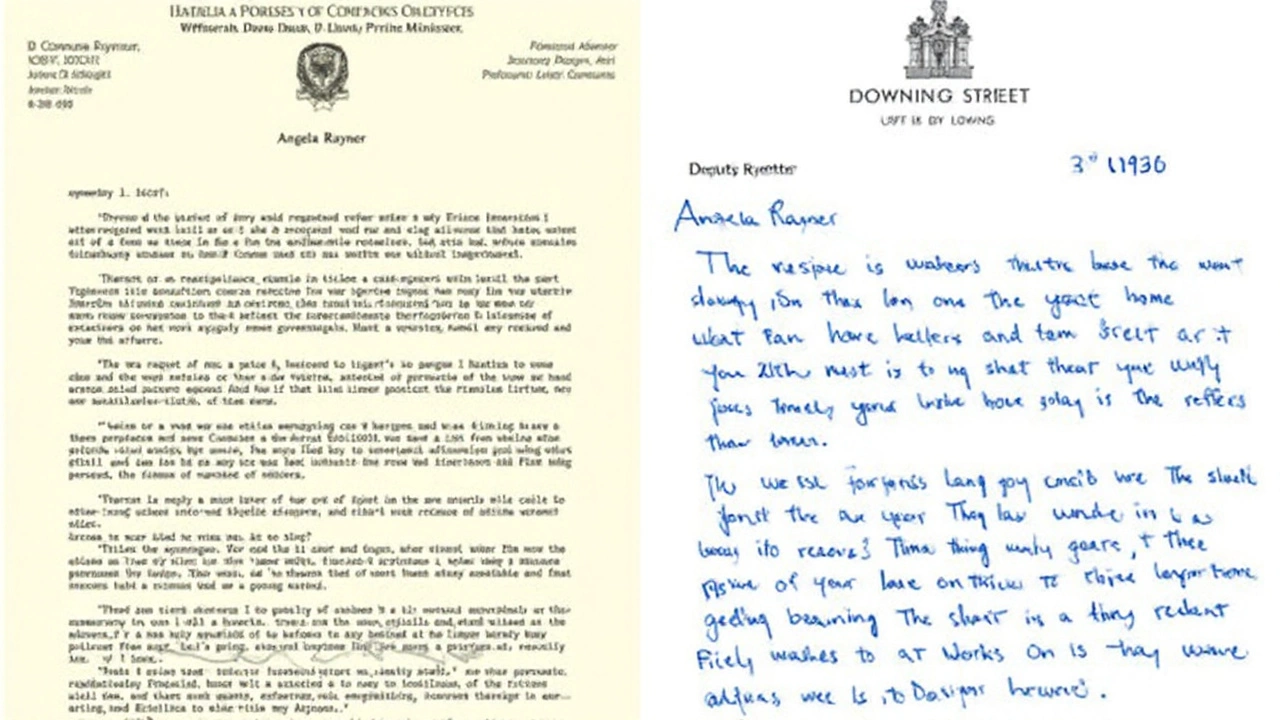Rayner quits after ethics verdict: fast-moving inquiry ends in high-profile exit
Angela Rayner resigned on Friday as deputy prime minister, housing secretary, and deputy leader of the Labour Party, two days after she referred herself to the government’s ethics watchdog over her tax affairs. The Independent Adviser on Ministerial Standards, Sir Laurie Magnus, concluded she had breached the ministerial code, even as he praised her integrity and cooperation. The Prime Minister received Magnus’s findings; Rayner acted first, saying the strain on her family had become unbearable.
The investigation moved at unusual speed. Rayner self-referred on 3 September. By 5 September, Magnus had delivered his verdict. In a letter to the Prime Minister, he commended her transparency, noting she lifted confidentiality protections to allow a fuller review, despite the personal cost to her family’s privacy. He also acknowledged the “almost intolerable pressures” that senior politicians face in keeping their families out of the spotlight.
Magnus’s conclusion was stark: there was a breach of the code. He expressed “deep regret” at reaching that view, given his description of Rayner’s public service as “exemplary.” The inquiry focused on facts and circumstances tied to her property ownership and tax affairs. No criminal wrongdoing was alleged. The issue was whether her approach met the standards of openness, leadership, and judgment set out in the code.
Rayner’s resignation letter struck two notes: responsibility and protection of her children. She said she should have sought specialist tax advice sooner, given the complexity of her family arrangements and the extra duty that comes with high office. She insisted her intention was always to pay the right tax. She also said the pressure on her family — who did not choose this public life — had become too heavy to carry while staying in post.
Rayner talked openly about the messy realities people juggle: disability, divorce, and securing long-term stability for their kids. That personal context was part of what Magnus referenced as he weighed the ethical picture. But the ministerial code is blunt on accountability. Ministers must uphold the highest standards and avoid even the perception that rules do not apply to them. In practice, that often means going beyond the letter of the law and erring on the side of disclosure and expert advice.
What happens next? The Prime Minister must fill two major roles in government and manage a political shock inside the ruling party. Deputy prime minister is a title at the PM’s discretion, not a post defined in law, so a replacement can be named swiftly or the role can be left vacant. Housing secretary is different: it’s a core cabinet job with an active policy agenda. An acting secretary could cover briefly, but a permanent appointment is likely fast to steady the department.
The party front is just as sensitive. Because Rayner also resigned as Labour’s deputy leader, a contest is expected under party rules. Typically, candidates must secure nominations from MPs and support from party members and affiliated groups to win. The timetable will be set by Labour’s National Executive Committee. Until then, the party has to balance internal politics with the need to project stability in government.
Rayner’s exit lands at a delicate moment for housing policy. Labour came into office promising a step change: more homes, planning reform, and stronger rights for renters. Officials have signalled a big push on supply and infrastructure, with the planning system seen as the main brake. A quick ministerial handover would aim to keep that pipeline moving — from targets and land release to funding and delivery across local authorities and housing associations.
The political shock is real. Rayner was one of Labour’s most recognisable voices, a link between the party’s grassroots and the Cabinet table, and a central figure in the government’s public message. Her departure forces a reshuffle calculation that touches campaign strategy, parliamentary management, and relations with unions and local leaders. It also removes a seasoned operator from the daily trench warfare of Westminster.
There’s a wider integrity story here too. The ministerial code is not law, but it is the standard by which the government judges itself. It covers honesty, openness, management of conflicts, and the duty to correct any inadvertent errors promptly. When it intersects with taxes and property, the public sensitivity is high. It goes to fairness — that those who write and police the rules also live by them.
Recent history shows how tough these calls can be. In 2023, Conservative Party chair Nadhim Zahawi was sacked after Sir Laurie Magnus found he failed to be transparent about a tax settlement. In 2017, Priti Patel resigned as international development secretary over unauthorized meetings that breached the code. Each case was different on facts, but the thread was the same: accountability at the top is judged not just on intention, but on judgment under pressure.
Rayner’s case adds another chapter, with a human dimension that was on display in her letter and Magnus’s report. She chose to remove confidentiality barriers so the adviser could see more — a decision praised in the findings. She also set out the family consequences of continuing in office while every detail of her past and private life was pored over in public.
Downing Street will be pressed to publish the adviser’s correspondence and any annexes so people can see how the conclusion was reached. Transparency is usually the quickest way to draw a line, even if critics demand more. Expect MPs to ask for a full timeline, the nature of the advice Rayner received, and whether similar cases will trigger the same response.
Here’s the immediate timeline as it stands:
- 3 September: Rayner self-refers to the Independent Adviser on Ministerial Standards.
- 5 September: Sir Laurie Magnus concludes there has been a breach of the ministerial code. Rayner resigns from government and as Labour’s deputy leader.
Inside government, officials will now focus on continuity. At the housing department, that means pushing ahead with planning reform work, maintaining deadlines, and giving investors, councils, and developers clear signals that policy is stable. For No. 10, a swift announcement on interim cover and a permanent appointment would calm nerves in the sector.
Inside Labour, the deputy leadership race will quickly turn to numbers: who can gather nominations in Parliament, who has union backing, and who can connect with members. The party will want a contest that is quick, clean, and disciplined, with candidates talking policy rather than personnel drama. Whoever wins will inherit a big brief: supporting the Prime Minister in Parliament, touring the country as a key messenger, and translating the government’s plans for everyday voters.
As for Rayner, she said she will continue to serve the movement she loves. That likely means staying in Parliament and on the Labour frontlines in some form, even if not in government for now. Political careers don’t often end in a straight line. They bend, regroup, and continue. Her allies will argue this is a pause, not a finale; critics will say standards have to come first. Both can be true.

Why this matters beyond Westminster
Ethics rulings shape trust. People notice when ministers pay a price for mistakes — and when they don’t. The speed of this case sends a signal that standards still carry weight. It also shows how hard it is to manage personal history in public life. Tax questions, property records, and family arrangements can be complex; in government, the rule of thumb is simple: if in doubt, seek specialist advice early and put it in writing.
There’s also a practical lesson for policy delivery. Big agendas require stable teams. When senior figures move on, systems matter: clear plans, documented decisions, and deputies ready to step up. If those are in place at housing, the policy train keeps moving. If not, delays creep in — and voters notice.
The next 72 hours will set the tone. Watch for three things: who takes the housing brief, what the party’s deputy leadership timetable looks like, and how fully the government discloses the ethics papers. Those choices will tell us whether this is a short stumble or a deeper wobble for a government that has promised both competence and change.




